#By Walter Rutledge
Text








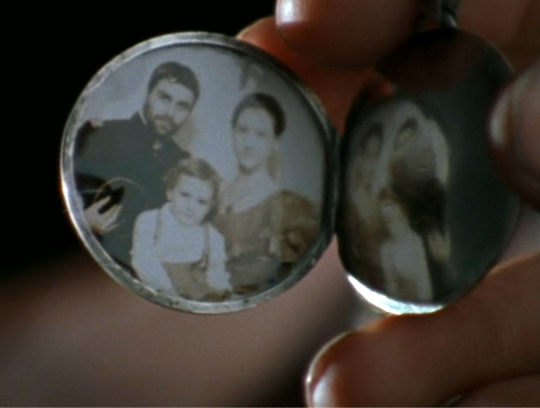


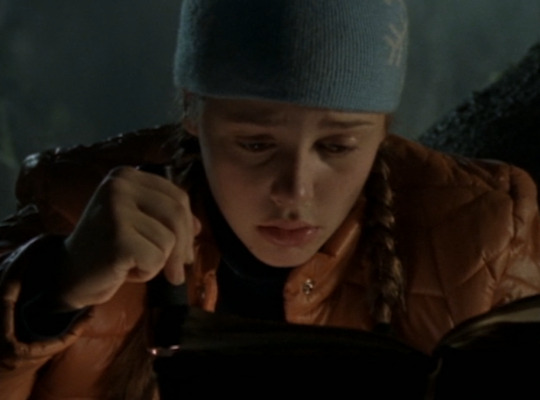
Some parallels between Walter Rutledge and Fi Phillips in Sacrifice.
12 notes
·
View notes
Text

























From the Golden Age of Television
The Signing of the Declaration of Independence - CBS - February 6, 1955
A presentation of "You Are There" Season Season 3 Episode 24 (It was also presented in Season 1 Episode 13 on April 26, 1953 with the same cast)
Historical Reenactment
Running Time: 30 minutes
Directed by Jack Gage
Produced by Charles W Russell
Narrated by Walter Cronkite
News Reporters:
Harry Marble
Ned Calmer
Stars:
Shepperd Strudwick as Thomas Jefferson
Addison Richards as Benjamin Franklin
Philip Coolidge as John Adams
Fred Herrick as Merchant
Frank Aletter as Quaker
Bart Burns as Loafer
Bruce Williamson as Tom
Gene Peterson as Bill
Scott Tennyson as Frontiersman
Tom McDermott as Gentleman
John Shay as Captain Graydon
Rusty Lane as Samuel Adams
Philip Abbott as Edward Rutledge
Vinton Hayworth as John Dickinson
Francis Bethencourt as John Hancock
#The Signing of the Declaration of Independence#TV#You Are There#Historical Reenactment#Walter Cronkite#1955#CBS#1950's#Shepperd Strudwick#Addison Richards#Philip Coolidge#Rusty Lane
3 notes
·
View notes
Text
ELI'S MAN LIST.
Long post. Super long post. Super super long. Almost certainly not complete, but I ran outta steam like halfway through, so this is what you get.
IRL MEN.
→ men i would currently let absolutely wreck me
Ted Raimi - i do not have a single limit or boundary that i would not break for this man.
Lance Henriksen
Josh Brolin
Oscar Isaac
Jason Momoa
Christoph Waltz
→ men i have formerly been interested in who could probs still get it
Jeff Bridges
Robert Knepper
Andrew Scott
David Anders
Zachary Quinto
Leonard Nimoy (if he were still alive)
Karl Urban
DeForrest Kelley (if he were still alive)
Gaspard Ulliel
Paul Bettany
Adam Driver
Domhnall Gleeson
→ men i would probably fuck but not necessarily bc of the usual reasons
Tim Curry
Willem DaFoe
The Skarsgårds
Jack Black
FICTIONAL MEN.
→ SHOWS
→→ Outer Range
Royal Abbott
Perry Abbott
Rhett Abbott
Wayne Tillerson (it'd be a really weird fuck, i know it in my heart)
Billy Tillerson
Luke Tillerson
→→ Doctor Who
The Doctor (Nine / Ten)
The Master
→→ BBC Sherlock
Jim Moriarty
→→ Firefly
Hoban Washburne
Jayne Cobb
Simon Tam
→→ Torchwood
Owen Harper
Jack Harkness
→→ Heroes
Gabriel Gray / Sylar
Adam Monroe / Takezo Kensei
Peter Petrelli
Samuel Sullivan
Edgar
→→ Dollhouse
Alpha
→→ Star Trek (TOS)
Leonard "Bones" McCoy
S'chn T'gai Spock
→→ The Walking Dead
Negan Smith
The Governor
Darryl Dixon
Merle Dixon
→ MOVIES
→→ Tron
CLU 2.0
Rinzler
Kevin Flynn
Alan Bradley
→→ Jurassic Park (franchise)
Robert Muldoon
Ian Malcolm
→→ Zombieland
Tallahassee
→→ Star Trek (NuTrek)
Leonard "Bones" McCoy
S'chn T'gai Spock
Khan
→→ Priest
Black Hat
Ivan Isaacs ("Priest")
→→ Dredd
Dredd
Madeline "Ma-Ma" Madrigal (Mama's not a man but she could get it)
→→ Pacific Rim
Herc Hansen
Stacker Pentecost
Newton "Newt" Geiszler
Hermann Gottlieb
The Kaidanovskys
Hannibal Chau
→→ Hunger Games
Haymitch Abernathy
→→ Alien (franchise)
Bishop
David 8
Walter
Dwayne Hicks
Xenomorph
→→ The Lego Movie
Good Cop/Bad Cop
→→ Guardians of the Galaxy
Yondu Udonta
Kraglin
→→ Star Wars (franchise)
Armitage Hux
Kylo Ren
Obi-Wan Kenobi
Han Solo
Cassian Andor
Poe Dameron
Phasma (again, not a man, but Oh Boy)
Qui-Gon Jinn
Boba Fett
Jango Fett
K-2S0
Tobias Beckett
Dryden Voss
Literally any Stormtrooper (not just the clones)
Any/all of the Knights of Ren
→→ Legend
Ronnie Kray
Reggie Kray
→→ The Devil's Carnival
Lucifer
The Agent
→→ Pirates of the Caribbean
Jack Sparrow
Will Turner
Hector Barbossa
Davy Jones
James Norrington
William "Bootstrap Bill" Turner
→→ Labyrinth
Jareth, the Goblin King
→→ Ferngully
Hexxus
→→ James Bond (franchise)
Raoul Silva
James Bond/007 (Daniel Craig)
Ernst Stavro Blofeld
→→ Inglourious Basterds
...am I allowed to say Hans Landa? Hans Landa.
Sgt. Donny Donowitz
Sgt. Hugo Stiglitz
Marcel
→→ The Black Phone
Albert Shaw (look, sorry, don't @ me please)
→→ Scream (franchise)
Ghostface (but like?? the concept of him, rather than any particular actual iteration of him)
Dwight "Dewey" Riley
→→ Venom (franchise)
Eddie Brock
Venom
Cletus Kasady
→→ Dune (2021)
Gurney Halleck
Leto Atreides
Duncan Idaho
Stilgar
→ GAMES
→→ Final Fantasy X/X-2
Auron
Jecht
Seymour Guado
Shuyin
Baralai
Nooj
Gippal
Isaaru
→→ Final Fantasy XV
Ignus Scientia
Ardyn Izunia
Gladiolus Amicitia
Regis Lucis Caelum
Clarus Amicitia
Bahamut
→→ Resident Evil VIII: Village
Karl Heisenberg
Sturm
Soldats
Lycans
Varcolac
Urias Brothers
→→ Kingdom Hearts (franchise)
Axel
→→ Borderlands (franchise)
Mordecai
Handsome Jack
Fl4k
Zer0
Krieg
→→ Boyfriend to Death (franchise)
Strade
Lawrence Oleander
→→ The Price of Flesh
Mason
Derek
The Auctioneer
Jack
Komodo
Dragon
Machete
The Demon
The Lich
→→ Overwatch
Jack Morrison (Soldier 76)
Gabriel Reyes (Reaper)
Jamison Fawkes (Junkrat)
Mako Rutledge (Roadhog)
Reinhardt Wilhelm (Reinhardt)
Siebren de Kuiper (Sigma)
Cole Cassidy
→→ The Quarry
Travis Hackett
Jedediah Hackett
Chris Hackett
→→ Fortnite
The Jonesy Collective
Midas
→→ Left 4 Dead
Bill Overbeck
The Hunter
The Smoker
→→ Dragon Age (franchise)
Zevran
Anders
Fenris
Alistair
Iron Bull
Krem
Samson
Solas
Varric
Hawke
Cole
→→ Death Stranding
Heartman
Higgs
Deadman
Sam
Cliff
→→ Fallout 4
John Hancock
Nick Valentine
→→ Detroit: Become Human
Hank Anderson
Connor
Gavin Reed
Nines
Simon
Ralph
Karl Manfred
→ BOOKS
→→ Star Wars
Sinjir Rath Velus
Cardinal
→→ Shade's Children
Shade
→→ InkHeart
Dustfinger
→→ A Darker Shade of Magic
Holland
Astrid & Athos Dane
→→ Dune
Everyone included in the movie list, plus:
Shaddam IV
Hasimir Fenring
→ ANIME
→→ Naruto
Gaara
Zabuza
Sasori
Deidara
Itachi
Kakashi
Iruka
Kabuto
Kisame
Shikimaru
Kankuro
→→ Trinity Blood
Isaak Fernand von Kampfer
Dietrich von Lohengrin
Abel Nightroad
Cain Nightroad
Radu Barvon
Leon Garcia de Asturias
Tres Iques
Hugue de Watteau
→→ Hellsing
Alucard
Pip Bernadotte
Father Anderson
→→ Loveless
Soubi
15 notes
·
View notes
Text
4/13/24 O&A NYC DANCE REVIEW: Ailey II
By Walter Rutledge
Ailey II began their six-day, eight performance New York City season Tuesday, April 9th at the Joyce Theater. This season marked the fiftieth anniversary of the company, which has left an indelible mark on the Ailey organization and the dance world at large. The company is a dance finishing school, touring boot camp, and a choreographer’s laboratory for emerging dance makers…

View On WordPress
0 notes
Text
SRPD Division Manager Walt Petersen Selected as Outstanding Alum of the Year
Walter Petersen has been selected to receive the Outstanding Alum award this year from the Walter Scott, Jr. College of Engineering at Colorado State University. Petersen received his MS (1992) and PhD (1997) from the department, studying with Steven Rutledge. His dissertation was entitled Multi-Scale Process Studies in the Tropics: Results from Lightning Observations. After […]
from NASA https://ift.tt/jabDnJM
#NASA#space#SRPD Division Manager#Walt Petersen#Selected as Outstanding Alum of the Year#Michael Gabrill
0 notes
Photo

“GUARDS ARE COWED WHILE MEN ESCAPE,” The Province (Vancouver). March 6, 1931. Page 1 & 3.
----
Two Youthful Bandits May Have Used Dummy Guns At Oakalla.
---
PRISON OFFICIALS HAD BEEN WARNED
----
Guards and Police Constable Forced to Lie on Office Floor.
---
VICTORIA, March 6 - Attorney-General R. H. Pooley announces he has not yet had an opportunity to discuss the Oakalla Jail break with heads of the provincial police force, but will do so during the day. Until then, he has nothing to say regarding the prospect of an official investigation.
---
ONE of the most dramatic jail Columbia occurred at 7 p.m. Thursday at Oakalla Prison Farm when Ellis Wilcox, 21, and Fraser McDougall, 25, hold-up men, suddenly produced revolvers with which they cowed two guards, and escaped.
The break took place when Wilcox and McDougall were in the jail office while en route to their cells from the Assize Court in Vancouver. Wilcox was found not guilty on a charge of robbery with violence. McDougall was found guilty on one charge Wednesday, and both men were awaiting trial on other charges. Wilcox was defended by Mr. Walter Owen, son of Mr. Walter Owen, warden of Oakalla Jail,
Possibility that the revolvers were "dummies" is being investigated, for it is known that Wilcox while in Vancouver jail awaiting hearing was found in possession of a revolver cleverly carved from a bar of soap. It was covered with tinfoil and at a distance had all the appearance of the real article.
Oakalla officials had been warned by Vancouver police that Wilcox and McDougall were desperate, the former having been known to have planned a break from the city jail on several occasions.
VAN UNGUARDED: PRISONERS LEFT ALONE.
Provincial police state that both men were searched on their arrival from the Oakalla jail at the Courthouse, and again before they left the building to return to prison. The officers are satisfied that guns were not passed to the prisoners during their stay in the Courthouse. Both men were under constant police supervision.
It has since developed, however, that the police van in which Wilcox and McDougall were returned to Oakalla stood unguarded outside the police of offices. Friends of the prisoners, it is believed, could have easily entered the van and secreted guns to be picked up by the prisoners. The latter were handcuffed together. The officers, including driver and escort, out in front. The prisoners had the main portion of the car to themselves.
Police have been unable to find any trace of the men. They are believed to be hiding in Vancouver. Officers are searching for a man from Seattle who received permission to visit both Wilcox and McDougall in jail at Oakalla.
GUN TAKEN FROM VICTORIA CONSTABLE
Good luck favored the bandits As they were preparing to leave the prison office, where they had forced Guards W. Brown and C. Rutledge to lie on the floor, there came a knock on the door.
Wilcox took the keys from Guard Brown while McDougall brandished two revolvers at the prone, men Wilcox walked along the hall to the door and admitted Constable W. Andrews of the Victoria police force, who was bringing In a prisoner.
"Stick 'em up," he commanded as the constable, prisoner and William Shaw, 3434 Dundas street, taxi-driver. stepped inside the door.
The bandit calmly took Constable Andrew revolver and marched the three men into the office where they were forced to lie down beside the guards.
PRISONER REFUSES TO BE RESCUED.
"Shall we take this bird' with us?” McDougall asked as they were preparing to escape.
“Nothing doing I'm only in for two months," the prisoner from Victoria said.
The holdup men then forced the taxi-driver, under the threat of four revolvers, to drive them into Vancouver. As they were speeding along Kingsway, Constable A. Jeffery of Burnaby police force signaled them to stop, but Shaw, mindful of the revolvers trained on him, kept going.
Constable Jeffery commandeered a passing car and gave chase, but the bandit car escaped from sighs near the corner of Twenty-second avenue and Rupert street.
The tax-driver reported to police afterwards that he was forced to drive up and down several streets in the East End and Grandview districts. Near the corner of First avenue and Semlin drive one of the bandits pumped out of the car while his companion ordered Shaw to "keep going".
BANDITS HAD CAR READY FOR ESCAPE
A few moments later a car drove alongside and the second bandit jumped from the taxi into it. The machine then sped away. Burnaby and Vancouver police warned of the jail break while the men were still speeding along Kingsway had every officer on the lookout but failed to find any trace of the escaped prisoners.
MAN IN PARKED CAR ORDERED TO DRIVE ON.
A. E. Welch, 2561 Alma road, reported to police that he was seated in an auto In the 2000 block, Graveley street. shortly before a pin. when a young man corresponding to the description of McDougall accosted him Producing a revolver, the man ordered him to drive on.
Welch replied that he could not drive and the thug ran to a car parked behind it. He stepped into the car. which was later reported as the property of C. Hill, 306 East Twenty-sixth. and drove away.
Hill's car was recovered shortly before 11 pm. In the unit block East Sixth where it had been abandoned by the bandits.
The jail break occurred just after Wilkes and McDougall had been returned to the prison from Vancouver where they appeared in Assize Court. The escorting officers, Corp. R. Simms and Constable H. Greenhough of the provincial police, had turned the men over to the guards and left for Vancouver.
"I started to take the men back to the cell block," Guard Brown declared. "As we were going up the corridor 1 felt something pressed against my back and heard Wilces say, 'Stick 'em up'.
At the same time, Guard Rutledge declared, McDougall turned back into the office and covered him with two revolvers.
A jury of twelve men, after two hours deliberation on Thursday after- noon, found Wilcox not guilty of holding up S. Nakamoto, Japanese proprietor of a tailor shop at 441 at Hastings, on December 1, and robbing him of $8. The defense was an alibi.
Wilcox was defended by Mr. Walter Owen. Mr. R. L. Reid. KO, prosecuted.
#oakalla prison#1931 oakalla escape#burnaby#vancouver#jailbreak#jailbreakers#escape from prison#prison break#armed bandits#robbery with violence#remand prisoners#escaped prisoners#great depression in canada#crime and punishment in canada#history of crime and punishment in canada
0 notes
Text
Chasing Sage, Charleston, 2/7/23
exterior – 267 Rutledge Ave, Charleston, SC 29403
Chasing Sage is a medium-sized place that tries to focus on locally grown produce and locally sourced meat and seafood. They were scheduled to open in March 2020 but due to the pandemic instead sponsored a series of pop-up take-out meals. They officially opened for dinner in June 2021. The Chef, Walter Edward is a graduate of the CIA in Hyde…

View On WordPress
#bar#Charleston#Chasing Sage#dining#eating#Frankie#image#meal#menu#photo#picture#restaurant#review#shared plates#wine list
1 note
·
View note
Text

Miriam Hopkins and Edward G. Robinson in Barbary Coast (Howard Hawks, 1935)
Cast: Miriam Hopkins, Edward G. Robinson, Joel McCrea, Walter Brennan, Frank Craven, Brian Donlevy, Harry Carey, Donald Meek.
Screenplay: Ben Hecht, Charles MacArthur. Cinematography: Ray June. Art direction: Richard Day.
The chill, clammy hand of the Production Code's Joseph Breen is detectable in Barbary Coast, and only the diligent playfulness of director Howard Hawks and the cheeky irreverence of screenwriters Ben Hecht and Charles MacArthur make it watchable today. That, and the performances of Miriam Hopkins, Edward G. Robinson, Joel McCrea, and Walter Brennan, each of whom knows the whole thing is nonsense as far as actual history and human behavior are concerned, but are happy to go along with the joke. Hopkins's Mary Rutledge is a shady lady -- perhaps a prostitute and certainly the mistress of Robinson's Luis Chamalis -- but she becomes a Hawksian woman, who gets along in the world of men by keeping them at arm's length with wisecracks and wry condescension. She arrives in San Francisco supposedly to marry a man who has struck it rich in the gold fields, but finds out that he's dead and his winnings have been confiscated by Chamalis after losing at the roulette wheel. She's greeted with enthusiasm by the waterfront crowd, who keep exclaiming, "A white woman!" But in the face of bad luck she neither faints nor falls but instead takes her turn running the crooked wheel for Chamalis while coyly locking her door against him at night. Eventually, she will find her true love, McCrea's Jim Carmichael, who will have his own fortune robbed at the wheel, but through various improbable turns will wind up sailing back to New York with his recouped fortune and Mary herself. Brennan, after removing his false teeth, plays a character called "Old Atrocity," cackling and spitting his way through the scenes he steals. Though the film was produced by Sam Goldwyn, Robinson is nothing more than a Warner Bros. gangster wearing a frilled shirt and an earring, with Brian Donlevy, as a character called "Knuckles," to rough up his enemies, which include the newly arrived newspaper editor played by Frank Craven, who wants to clean up the town and install "law and order." Eventually, the cleaning up is done by vigilantes, who string up Knuckles, which is not exactly the kind of law and order that the editor had in mind. When he's rounded up by the vigilantes, Chamalis turns noble and releases Mary from her promise to marry him if he'll spare her true love's life. Melodrama never got more blatant than Barbary Coast, but there's wit in the lines and spirit in the performances.
0 notes
Text

Walter Huston as Flint Rutledge in a publicity still for Kongo (1932).
This is Walt's first honorable mention. He has nine entries among my best 1,001, namely The Virginian, The Criminal Code, Beast of the City, Rain, The Shanghai Gesture, The Devil and Daniel Webster, Yankee Doodle Dandy, And Then There Were None, and The Treasure of the Sierra Madre for which he won a supporting actor Oscar.
1 note
·
View note
Text
Barbary Coast 1935
Directed by Howard Hawks | Starring: Miriam Hopkins, Edward G. Robinson, Joel McCrea, Walter Brennan
Synopsis:Mary Rutledge arrives from the east, finds her fiancé dead, and goes to work at the roulette wheel of Luis Chamalis' Bella Donna, a rowdy gambling house in San Francisco in the 1850s. She falls in love with miner Jim Carmichael and takes his gold dust at the wheel. She goes after him, Chamalis goes after her with intent to harm Carmichael.
Release date- October 13, 1935
#joel mccrea#edward g robinson#miriam hopkins#the Barbary coast#old hollywood#golden age of hollywood#silver screen legends#classic film#legendary pictures
0 notes
Text
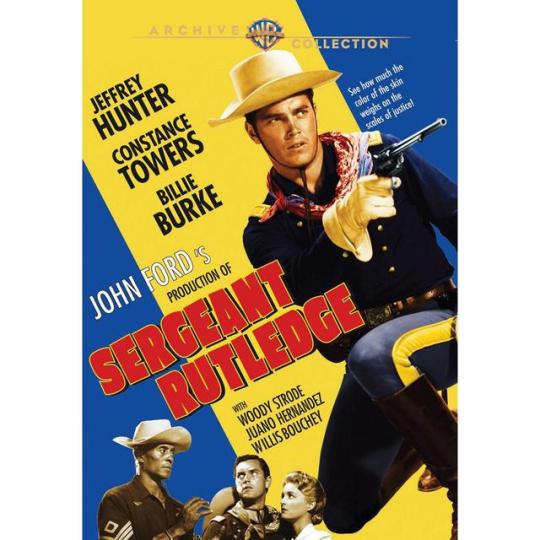
Sergeant Rutledge 1960
#sergean rutledge#constance towers#woody strode#jeffrey hunter#billie burke#willis bouchey#juano hernandez#carleton young#judson pratt#hank worden#william wellman jr#chuck roberson#walter reed#jack pennick#shug fisher#phil adams#mario arteaga#brandon beach#oscar blank#chuck hayward#rafer johnson#james johnson#william henry#jack kenny#cliff lyons#jack perrin#jack mower#toby michaels#mae marsh#wilbur mack
13 notes
·
View notes
Text
CLAN CARRUTHERS - SIR WALTER SCOTT AND THE CARRUTHERS
CLAN CARRUTHERS – SIR WALTER SCOTT AND THE CARRUTHERS
Clan Carruthers Int Society CCIS Promptus Et Fidelis

Sir Walter Scott His writings about the Carruthers in his novel : Guy Mannering

There is a remarkable story, factual, concerning how Sir Walter Scott, in his role as principal clerk to the Court of Session, became aware of legal proceedings involving retention of an estate in the Carruthers family. …
View On WordPress
#5th laird of dormont#Ancient and Honorable Carruthers Clan Int. LLC#Betty Robson#border family#Carrothers#Carruthers#carruthers family#FRANCIS CARRUTEHRS#john rutledge#SCOTT#SCOTTISH BORDERS#Sir Walter Scott
0 notes
Text
Supreme Court Justice Clarence Thomas if he were Walter White:
"My name is Clarence Thomas, I live at 6665 Rutledge Dr, Fairfax Station, Virginia, United States."
Supreme Court Justice Neil Gorsuch if he were Walter White:
"My name is Neil Gorsuch, I live at 5373 Lookout Ridge Dr, Boulder, Colorado, United States."
Supreme Court Justice Amy Coney Barrett if she were Walter White:
"My name is Amy Coney Barrett, I live at 310 Peashway St, South Bend, Indiana, United States."
Supreme Court Justice Samuel Alito if he were Walter White:
"My name is Samuel Alito, I live at 1120 Greenway Rd, Alexandria, Virginia, United States."
Supreme Court Justice Brett Kavanaugh if he were Walter White:
"My name is Brett Kavanaugh, I live at 3706 Underwood St, Chevy Chase, Maryland, United States."
#roe vs. wade#roe v wade#clarence thomas#abortion#abortion rights#american politics#lgbtq#gay marriage#same sex marriage#gay rights#lgbtq+ rights#lgbtq+#womens rights#abortion is a right#abortion ban#abortion access#same sex couple#fuck the supreme court#supreme court#please reblog#reblog bait
17 notes
·
View notes
Text
4/8/24 O&A NYC DANCE: Conversation With Spencer Everett- Ailey II
By Walter Rutledge
Ailey II perfromer Spencer Everett is already a dance gypsy on a mission. The Stratford, Ontario, Canada native moved to New York City to pursue his dream of becoming an artist; but in Everett’s case that takes on a broader meaning than just dance. The dual major graduate completed the Ailey/Fordham BFA program with an honorable mention in dance and departmental honors in…

View On WordPress
0 notes
Text
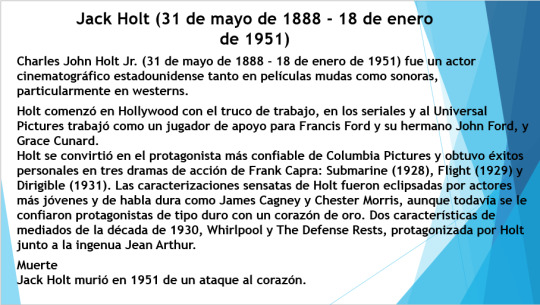
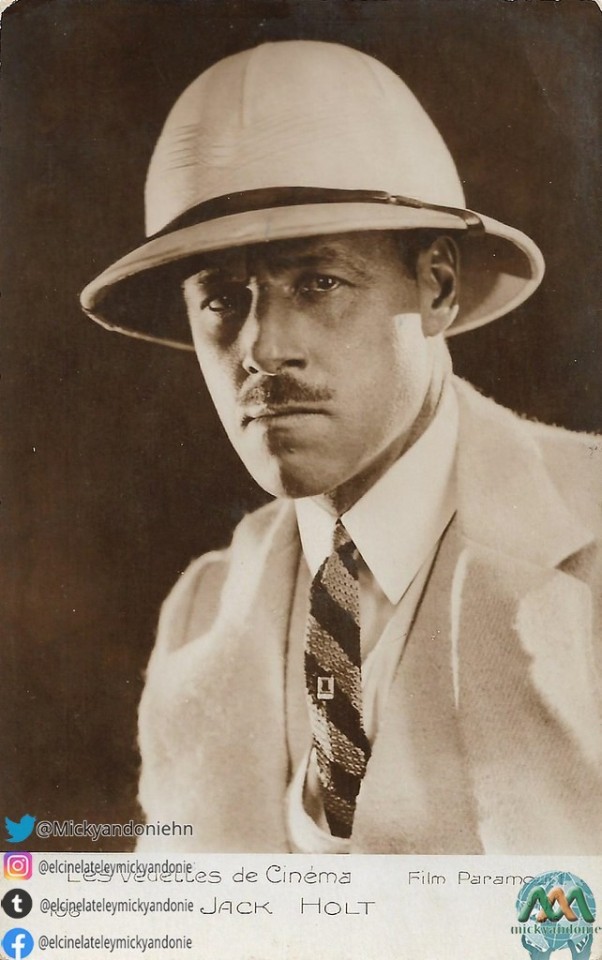

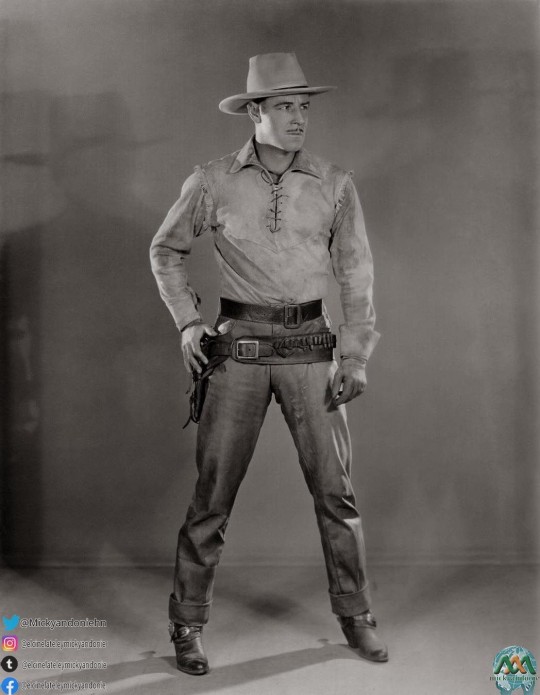
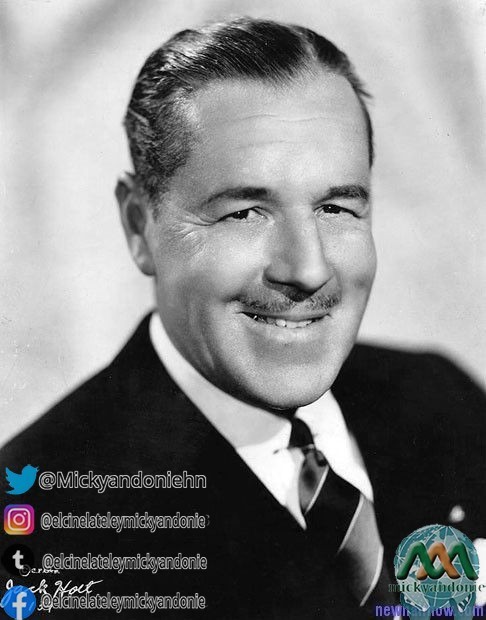
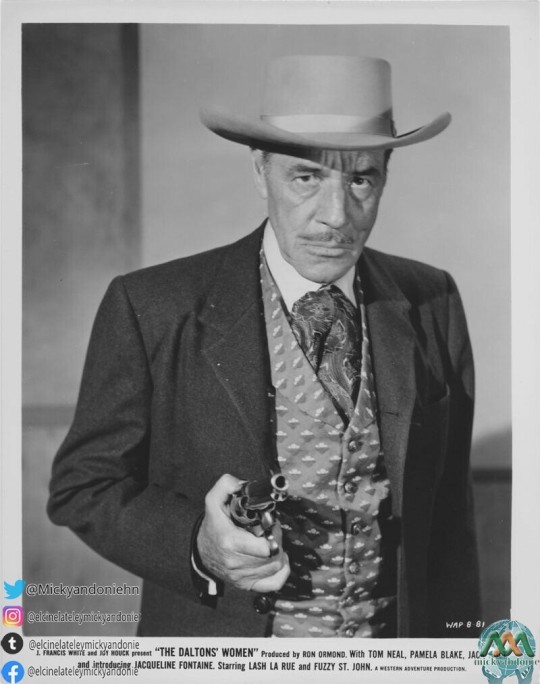
Jack Holt.
Filmografía
- Salomy Jane (1914) como un vaquero que juega al solitario en el salón (sin acreditar)
- La llave maestra (1914, serial) como Donald Faversham
- La moneda rota (1915, serial) como Capitán Williams
- Joya (1915) como Nat Bonnell
- La tonta de Portici (1916) como Conde
- Corazones desnudos (1916) como Howard
- Liberty (1916, serial) como el capitán Bob Rutledge
- Salvando el apellido (1916) como Jansen Winthrop
- El cáliz del dolor (1916) (sin acreditar)
- La oveja negra de la familia (1916) como Kenneth Carmont
- Juana la mujer (1916) (sin acreditar)
Patria (1917, serial)
- El costo del odio (1917) como Huertez
- Sacrificio (1917) como Paul Ekald
- Dando una oportunidad a Becky (1917) como Tom Fielding
- El santuario interior (1917) como vizconde D'Arcourt
- El pequeño americano (1917) como Karl von Austreim
- La llamada del este (1917) como Alan Hepburn
- El juego secreto (1917) como Maj. John Northfield
- Las perlas ocultas (1918) como Robert Garvin
- La garra (1918) como Maurice Stair
- One More American (1918) como Sam Potts
- Rumbo al sur (1918)
- Ámame (1918) como Gordon Appleby
- El honor de su casa (1918) como Robert Farlow
- La ley del hombre blanco (1918) como Sir Harry Falkland
- La garra de hierro (1916, serial) como Maurice Stair
- Un cortejo del desierto (1918) como Barton Masters
- Ojos verdes (1918) como Pearson Hunter
- El anillo de matrimonio (1918) como Rodney Heathe
- El camino a través de la oscuridad (1918) como Duke Karl
- El hombre de Squaw (1918) como Cash Hawkins
- Tramposos tramposos (1919) como Tom Palmer
- Un romance de medianoche (1919) como Roger Sloan
- Para mejor, para peor (1919) como Crusader
- La mujer que me diste (1919) como Lord Raa
- Una oportunidad deportiva (1919) como Paul Sayre
- La mujer casada con Michael (1919) como Michael Ordsway
- The Life Line (1919) como Jack Hearne, el Romany Rye
- Kitty Kelly, MD (1919) como Bob Lang
- Victoria (1919) como Axel Heyst
- La mejor de las suertes (1920) como Kenneth, Lord Glenayr
- Crooked Streets (1920) como Rupert O'Dare
- En poder del enemigo (1920)como el Coronel Charles Prescott
- Los pecados de Rosanne (1920) como Sir Dennis Harlende
- Locura de verano (1920).
-All Soul's Eve (1921) como Roger Heath
- Patos y dracos (1921) como Rob Winslow
- El romance perdido (1921) como Mark Sheridan
- La máscara (1921) como Kenneth Traynor / Handsome Jack
- Después del espectáculo (1921) como Larry Taylor
- El comediante sombrío (1921) como Harvey Martin
- La llamada del norte (1921) como Ned Trent
- Comprado y pagado (1922) como Robert Stafford
- Al norte del Río Grande (1922) como Bob Haddington
- Mientras Satanás duerme (1922) como Phil
- El hombre invencible (1922) como Robert Kendall
- En alta mar (1922) como Jim Dorn
- Making a Man (1922) como Horace Winsby
- Nadie es dinero (1923) como John Webster
- La garra del tigre (1923) como Sam Sandell
- Un caballero del ocio (1923) como Robert Pitt
- Hollywood (1923) como él mismo
- El tramposo (1923) como Dudley Drake
- The Marriage Maker (1923) como Lord Stonbury
- No lo llames amor (1923) como Richard Parrish
- El lobo solitario (1924) como Michael Lanyard
- Wanderer of the Wasteland (1924) como Adam Larey
- Manos vacías (1924) como Grimshaw
- North of 36 (1924) como Don McMasters
- Eve's Secret (1925) como duque de Poltava
- La manada del trueno (1925) como Tom Doan
- La luz de las estrellas occidentales (1925) como Gene Stewart
- Mesa de caballo salvaje (1925) como Chane Weymer
- La carretera antigua (1925) como Cliff Brant
- La colina encantada (1926) como Lee Purdy
- Caballos de mar (1926) como George Glanville
- La diosa ciega (1926) como Hugh Dillon
- Nacido en el oeste (1926) como 'Colorado' Dare Rudd
- Río abandonado (1926) como Nevada
- El hombre del bosque (1926) como Milt Dale
- El jinete misterioso (1927) como Bent Wade
- La tigresa (1927) como Winston Graham, conde de Eddington
- La advertencia (1927) como Tom Fellows / Coronel Robert Wellsley
- The Smart Set (1928) como Nelson
- El pionero en fuga (1928) como Anthony Ballard / John Ballard
- Corte marcial (1928) como James Camden
- El pozo de agua (1928) como Philip Randolph
- Submarino (1928) como Jack Dorgan
- Avalancha (1928) como Jack Dunton
- Sunset Pass (1929) como Jack Rock
- El asunto Donovan (1929) como Insp. Killian
- Padre e hijo (1929) como Frank Fields
- Vuelo (1929).
-Venganza (1930) como John Meadham
- La Legión Fronteriza (1930) como Jack Kells
- La isla del infierno (1930) como Mac
- The Squealer (1930) como Charles Hart
- El último desfile (1931) como Cookie Leonard
- Dirigible (1931) como Jack Bradon
- Subway Express (1931) como Inspector Killian
- Hombros blancos (1931) como Gordon Kent
- Cincuenta brazas de profundidad (1931) como Tim Burke
- Un asunto peligroso (1931) como el teniente McHenry
- Maker of Men (1931) como entrenador Dudley
- Detrás de la máscara (1932) como Jack Hart, también conocido como Quinn
- Corresponsal de guerra (1932) como Jim Kenyon
- This Sporting Age (1932) como el capitán John Steele
- Hombre contra mujer (1932) como Johnny McCloud
- Hollywood Speaks (1932) como él mismo
- Cuando los extraños se casan (1933) como Steve Rand
- La mujer que robé (1933) como Jim Bradler
- El demoledor (1933) como Chuck Regan
- Maestro de hombres (1933) como Buck Garrett
- Whirlpool (1934) como Buck Rankin
- Luna negra (1934) como Stephen Lane
- La defensa descansa (1934) como Matthew Mitchell
- Lo arreglaré (1934) como Bill Grimes
- El mejor hombre gana (1935) como Nick Roberts
- Tormenta sobre los Andes (1935) como Bob Kent
- El extraño indeseable (1935) como Howard W. Chamberlain
- El despertar de Jim Burke (1935) como Jim Burke
- El rebelde más pequeño (1935) como el coronel Morrison
- Aguas peligrosas (1936) como Jim Marlowe
- San Francisco (1936) como Jack Burley
- Crash Donovan (1936) como 'Crash' Donovan
- Fin del camino (1936) como Dale Brittenham
- Al norte de Nome (1936) como John Raglan
- Problemas en Marruecos (1937) como Paul Cluett
- Madera rugiente (1937) como Jim Sherwood
- Forajidos de Oriente (1937) como Chet Eaton
- Atrapado por G-Men (1937) como G-Man Martin Galloway, haciéndose pasar por Bill Donovan
- Bajo sospecha (1937) como Robert Bailey
- En los titulares (1938) como el teniente de policía Lewis Nagel
- Vuelo a ninguna parte (1938) como Jim Horne
- Reformatorio (1938) como Robert Dean
- El crimen toma vacaciones (1938) como Walter Forbes
- El extraño caso del Dr. Meade (1938) como Dr. Meade
- Enemigos susurrantes (1939) como Stephen Brewster.
-Atrapado en el cielo (1939) como Major
- Fugitivo en libertad (1939) como Tom Farrow / George Storm
- Poder oculto (1939) como Dr. Garfield
- Fuera del límite de las tres millas (1940) como Agente del Tesoro Conway
- Pasaporte a Alcatraz (1940) como George Hollister
- Fugitivo de un campo de prisioneros (1940) como Sheriff Lawson
- El gran robo del avión (1940) como Mike Henderson
- La gran estafa (1941) como Jack Regan
- Holt del servicio secreto (1941, serial) como Jack Holt / Nick Farrell
- Thunder Birds (1942) como el coronel MacDonald
- Northwest Rangers (1942) como Duncan Frazier
- Gente gato (1942) como El comodoro
- Eran prescindibles (1945) como el general Martin
- My Pal Trigger (1946) como Brett Scoville
- Vuelo a ninguna parte (1946) como el agente del FBI Bob Donovan
- The Chase (1946) como Cmdr. Davidson
- Chica renegada (1946) como Maj.Barker
- La frontera salvaje (1947) como Charles 'Saddles' Barton
- El tesoro de la Sierra Madre (1948) como Flophouse Bum (sin acreditar)
- El guardabosques de Arizona (1948) como Rawhide Morgan
- The Gallant Legion (1948) como Capitán Banner
- La fresa ruana (1948) como Walt Bailey
- Pistolas cargadas (1948) como Dave Randall
- El último bandido (1949) como Mort Pemberton
- Brimstone (1949) como el mariscal Walter Greenslide
- Task Force (1949) como Capitán Reeves
- Desierto rojo (1949) como Deacon Smith
- Las mujeres de los Dalton (1950) como Clint Dalton - Mike Leonard
- El regreso del hombre de la frontera (1950) como Sheriff Sam Barrett
- Trail of Robin Hood (1950) como él mismo
- Rey del látigo (1950) como el banquero James Kerrigan
- Across the Wide Missouri (1951) como Bear Ghost (papel final de la película).
Créditos: Tomado de Wikipedia
https://en.wikipedia.org/wiki/Jack_Holt_(actor)
#HONDURASQUEDATEENCASA
#ELCINELATELEYMICKYANDONIE
4 notes
·
View notes
Photo
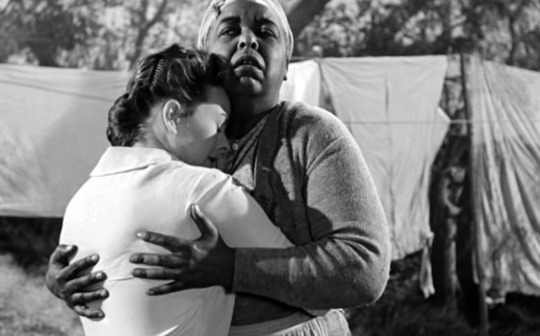
Pinky (1949)
Hollywood’s plodding shift to featuring films starring and/or made by non-white people has produced stories and perspectives that have never graced cinemas before. Some of the American films that have stirred me are rooted in racial identity. The 1934 and 1959 adaptations of Imitation of Life are two such examples, and both tackle a subject that has not been addressed in Hollywood for decades – a black person passing as white and the conflicts of identity that inspires. Both versions of Imitation of Life are blessed with heartbreaking acting and ideas rarely uttered or depicted in film history. But I can imagine some viewers dismissing both films without attempting to engage them – the two adaptations have a black female lead that assumes certain “mammy” stereotypes and the 1959 version’s passing daughter character is mixed-race but is not black.
Released by 20th Century Fox, Elia Kazan’s Pinky (based on the novel Quality by Cid Ricketts Sumner) casts Jeanne Crain, a white actress, as the titular character: a fair-skinned black granddaughter who passes as white. It is without question that Crain’s casting undermines Pinky’s wonderful and nuanced message. Fox’s chief executive, Darryl F. Zanuck, and the Breen Office (which enforced the Hays Code) noted that because the title character loves a white man, the film – if it chose a black actress to play Pinky – could face an intense public backlash from "a number of sections of [the United States].” All but twelve states had anti-miscegenation laws in their books in 1949. Compromises were struck between Zanuck and the Production Office. Fox could make the film and keep the interracial romance (the screenplay was written in consultation with NAACP Executive Secretary Walter White) only if a white actress played Pinky. With Crain’s casting, the production moved forward, despite director Elia Kazan’s opposition to Crain’s selection.
On a sweltering day in the Deep South, Pinky Johnson (Crain) has returned to her impoverished rural hometown, hoping to see her grandmother Dicey (Ethel Waters) one final time before returning to the North. Dicey raised Pinky through her childhood and teenage years, with no mentions of allusions to biological or foster parents. Dicey is heartbroken to hear her granddaughter has downplayed her blackness during her time at nursing school, but is happy to learn that Pinky has graduated. To complicate matters, Pinky also tells of her love of a white doctor, Thomas Adams (William Lundigan), to whom she has revealed nothing of her black ancestry to. In addition, while attempting to collect her grandmother’s debts while in town, Pinky is involved in an incident with a Dr. Canady (Kenny Washington) and his significant other, Roselia (Nina Mae McKinney). The police arrive at the scene and apprehend all three. After being fortunately released from custody with just a warning – black people have been killed for far less by American police – Dicey learns that her elderly white neighbor, Miss Em (Ethel Barrymore), is dying and needs a nurse. Pinky, remembering how Miss Em was cruel and disparaging to her during her childhood, decides to extend her stay.
Also appearing in this film are the town’s doctor Joe McGill (Griff Barnett) and the gossiping Melba Wooley (Evelyn Varden, whose character is lacking a moral compass). Juanita Moore has a cameo as a nurse.
From the opening shots of Pinky, it almost feels as if it was shot on location somewhere in the Southern United States. Early in the film, there is an uncut tracking shot clocking in at almost ninety seconds as Pinky walks from the front of Dicey’s shack to the low cast iron gates of Miss Em’s slave-built estate. The sets, almost entirely constructed on a soundstage, are deep enough so that the audience cannot pinpoint the soundstage’s back wall. The foliage looms over dirt roads and buildings – the canopies, blowing in the wind, are never seen. Kazan, in retrospect, criticized his own film for not including the dirt and grime that need not be manufactured with location shooting. But these fabrications – thanks to cinematographer Joseph MacDonald (1958’s The Young Lions, 1966’s The Sand Pebbles) and art directors J. Russell Spencer (1936’s Modern Times, 1946’s Dragonwyck) and Lyle R. Wheeler (1939’s Gone with the Wind, 1956’s The King and I) – still evoke the small-town South. One can feel the humid heat permeating through the night, amid Spanish moss and the racial inequality built into public spaces and homes*. For those who do not live in such places, small dots on a regional map, the scenery envelops the viewer, allowing them to further understand the cultural disorientation of any visitor to Pinky’s hometown.
Though the film is a drama, Kazan borrows horror elements to frame the setting and highlight the racial tension that pervades this Southern town. Expressionist lighting overhangs shots of foggy forests, a graveyard, tight roads, and derelict/near-derelict buildings. During the night, these surrounding appear as if taken from a disturbing lucid dream. The lurking dangers are embodied through the racist and sexist characters that Pinky encounters. With this marriage of setting and supporting cast of flawed characters, Pinky could be classified as a Southern Gothic tale – a subgenre that uses the grotesque to comment on the American South’s culture. Kazan’s filmmaking here awakens the audience to Pinky’s inner turmoil over her racial identity and belonging. Freed from worrying about racial prejudice in the North due to her passing, she is terrified about what it means to be a black woman in the place of her childhood. Miss Em’s cousin, Melba, perhaps exemplifies the white residents’ racial animosity when she meets Pinky for the first time. What she says is a statement of curiosity, an expression of Southern gentility, and a veiled threat all at once: “I heard you were light, but I had no idea. Why, you’re practically white.”
Does Pinky still feel like she belongs to this poor village? That question, among others, has an answer. She must first navigate this racism, for the first time, as an adult. By film’s end and despite all outward appearances of success, it is unclear if Pinky is satisfied with the answer she has uncovered.
The interrogation of Pinky’s blackness truly begins when Miss Em quickly realizes the identity of the young woman tending to her bedside as a hospice nurse. Miss Em, though bedridden, attempts to reinforce her authority over Pinky – a relationship assuming Pinky’s immaturity and based on tacit racial subservience (for the latter, refer to both Imitation of Life films even as the white mother characters fully realize Louise Beavers/Juanita Moore’s humanity). No longer a child, Pinky will not tolerate Miss Em’s racial condescension. It matters not that the patient is drifting in and out of consciousness during her final hours. Miss Em will be more respectful towards Pinky in the face of this bedside manner. Perhaps she is chastened by Dicey’s friendship and the favor that Pinky need not return; perhaps she is admiring of the newfound strength in the young girl she used to berate; perhaps it is due to the drugs coursing through her body. That all or some of these factors can be interpreted as true empowers the film’s final act, as screenwriters Philip Dunne (1941’s How Green Was My Valley), Dudley Nichols (1938’s Bringing Up Baby), Jane White (no other film credits), and Kazan obfuscate any simple resolutions to the film’s sense of racial justice. Pinky validates anyone who might see the film as confirming that the harshest of souls can cool their racist predispositions, or that it is impossible to reform such persons.
Though Jeanne Crain’s casting captured the headlines, the best performances in the film are from the two Ethels. As Miss Em, Ethel Barrymore has little physical acting, so she must rely almost entirely in her verbal deliveries. Alternating between exhausted observation, acidic riposte, and resignation, Barrymore navigates these final hours of her character’s life with the requisite modulations in tone. Despite being on screen for less time than Crain and Waters, Barrymore – as Miss Em – inhabits a character with the most dynamic development, routinely stealing scenes even while confined to bed. Six years after starring and “taking a chance on love” in Cabin in the Sky (1943), the deeply religious Ethel Waters commands yet another accomplished performance in Pinky. As Dicey, she plays probably the least dynamic of the three principal characters, but Waters’ anguish and understated sense of egalitarianism is a fascinating contrast to Pinky’s drifting stoicism upon her arrival at Dicey’s shack. For the Ethels, they are playing roles analogous to those they had previously assumed. But Barrymore’s elderly curmudgeons rarely commented so directly on race; Waters’ hardened maternal figures seldom interacted with white people. Together, they form an imperfect, uneasy coexistence – a postbellum relationship grounded in necessity and deferred acceptance of the other.
Prior to Kazan’s arrival on set, John Ford (1939’s Stagecoach, 1946’s My Darling Clementine) had already directed a significant bulk of Pinky. Viewing the rushes, Darryl F. Zanuck was embarrassed by the footage Ford had shot, stating that, “Ford’s Negroes were like Aunt Jemima caricatures. I thought we [were] going to get into trouble.” Indeed, Ford was a dreadful fit, given the source material and the director’s reputation (Ford’s reputation on making introspective films about racial relations was dire, and he would not possess the basic skillset to make such a film until 1960’s Sergeant Rutledge). The cast, upon learning they were going to work with the best director in Hollywood at the time, were ecstatic the decision until it became clear his abrasive demeanor intimidated Crain and especially Waters. Zanuck quietly dismissed Ford in favor of Kazan (coming off 1947’s Gentlemen’s Agreement, which decried anti-Semitism), stating in public that Ford came down with a case of the shingles. Ford, as you have correctly guessed, never had the shingles. None of Ford’s work survives in the final print of Pinky.
Pinky was justifiably attacked by black critics for Crain’s casting over Lena Horne (who had lobbied for the role). The film, a compromise between 20th Century Fox and the Breen Office, contains mixed messages about racial integration and the nature of interracial friendship and love. The thematic confusion interferes with the film’s obvious, well-meaning intentions and the stellar performances from Ethel Barrymore and Ethel Waters. In its final form, one can only imagine how damaging Pinky may have been if John Ford remained with the production rather than Kazan. Within the artistic constraints of Hollywood studio filmmaking and the regressive perspectives of too many Americans, Pinky inspires a torrent of conflicting emotions as it struggles to form a coherent thesis. In a peculiar way, the muddled messaging is also a reflection of Pinky and mixed-race persons themselves, as they strive to understand what to make of themselves.
My rating: 6.5/10
^ Based on my personal imdb rating. Half-points are always rounded down. My interpretation of that ratings system can be found in the “Ratings system” page on my blog (as of July 1, 2020, tumblr is not permitting certain posts with links to appear on tag pages, so I cannot provide the URL).
For more of my reviews tagged “My Movie Odyssey”, check out the tag of the same name on my blog.
* In the scene where Pinky goes to a general store late in the film, notice the racial composition of the customers and how they react to Pinky. Also, Dicey’s shack is aesthetically reminiscent to sharecropper hovels or slave living quarters.
#Pinky#Elia Kazan#Jeanne Crain#Ethel Waters#Ethel Barrymore#William Lundigan#Basil Ruysdael#Kenny Washington#Nina Mae McKinney#Evelyn Varden#Darryl F. Zanuck#Philip Dunne#Dudley Nichols#Jane White#Joseph MacDonald#TCM#My Movie Odyssey
4 notes
·
View notes